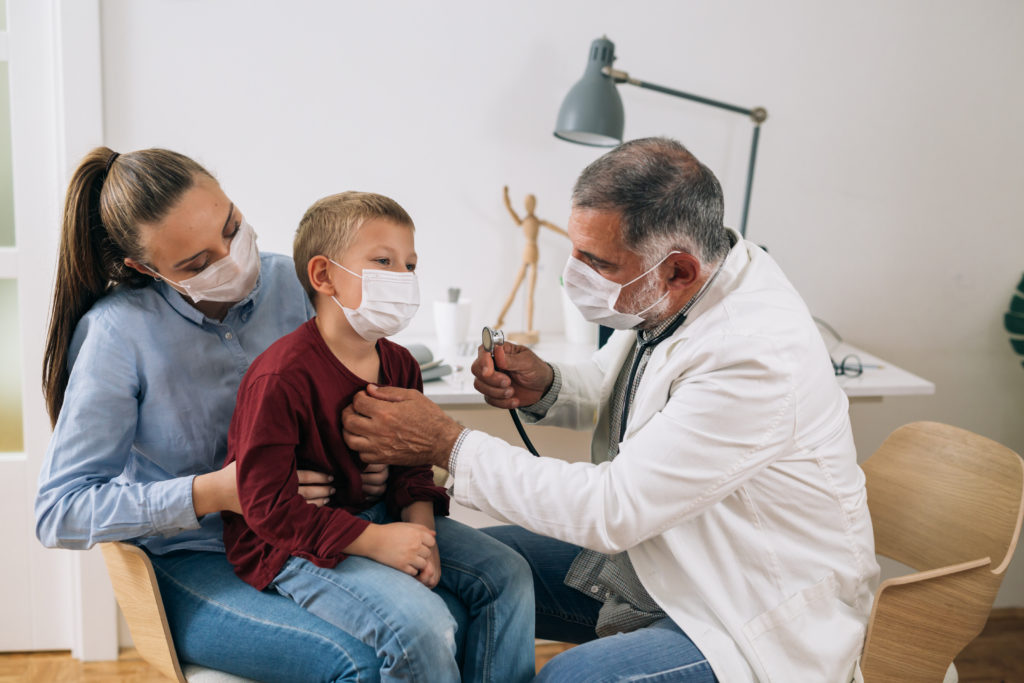Access to affordable health care makes a huge difference to a child’s future. Investing in children’s health care will help ensure we have a healthy population and a strong economy for years to come. Providing every child in Maine access to affordable health care is one of the most important things we can do to set them up for success in life.
A bill before the Maine Legislature this year — LD 372, “An Act to Provide Maine Children Access to Affordable Health Care,” sponsored by Sen. Anne Carney — takes a big step in that direction by increasing coverage eligibility and removing barriers to care for children currently eligible for the Children’s Health Insurance Program, or CHIP, known in Maine as Cub Care. The bill would cover an additional 7,500 Maine children, according to the Legislature’s Office of Fiscal and Program Review.
Currently Maine offers Medicaid or CHIP coverage to children aged 18 or younger if their family income is less than 213 percent of the federal poverty level, and coverage to 19- and 20-year-olds if their household income is below 161 percent of the federal poverty level. LD 372 would give Maine’s children the same opportunities as children in 19 other states, which provide coverage for children whose family incomes are below 312 percent of the federal poverty level. These states are taking full advantage of the substantial federal matching dollars to fund children’s health care. In Maine, the federal government currently covers 79% of the cost of covering children in the CHIP program, meaning that every dollar spent by the state is matched by $2.65 in federal funds.
Research shows that access to health insurance profits benefits to children throughout their lives. Children who have access to health insurance have reduced rates of chronic illness and fewer hospitalizations later in life. Healthier children perform better in school and research has also shown that children from low-income households are more likely to graduate high school and attend college when they are covered by Medicaid.
In addition to allowing Maine children to live better lives, additional health coverage will mean a stronger state economy. For example, Medicaid enrollment for children results in higher wages later in life, which means additional tax receipts. Government also sees savings through reduced need for safety net programs later in life, especially a reduced likelihood of becoming unable to work through a disability.
LD 372 also will make important improvements to the existing CHIP program in Maine, such as eliminating unnecessary barriers to care for Maine children, including allowing children to gain coverage immediately after losing another form of insurance (rather than the current three-month waiting period), eliminating the asset test, and removing cost-sharing requirements.
Numerous studies show that even small premiums create significant barriers to care for people with low incomes. These premiums also cost more to collect than they generate in revenue for the state, making them bureaucratically wasteful. There’s no justification for keeping Maine kids from getting the care they need with this unnecessary layer of red tape.
Lastly, LD 372 also recognizes that Maine should care for all children, regardless of where they were born. The bill would cover undocumented children, providing them access to affordable health care. Undocumented children are where they are because of decisions made by their parents. While we know that there are very few undocumented kids living in Maine,[1] the bill nonetheless upholds an important principle: we must care for our most vulnerable neighbors, no matter their immigration status. If the COVID-19 pandemic has taught us anything, it’s that our society is only as strong as our most vulnerable members. Ensuring that everyone has access to health care makes us all healthier.
This bill will reverse the damaging practices of recent years which have seen fewer Maine children able to afford the health care they need. The LePage administration’s policies of reducing eligibility for adults in the MaineCare program had the effect of removing children from the program as well. Numerous studies have shown that when parents have coverage, their children are much more likely to have coverage. Expansion of adult eligibility in 2019 has helped reverse this, and the provisions in this bill will allow more children access to lifesaving care. Children’s health care is both a smart economic investment and the right thing to do. I urge you to support this legislation.
Notes
[1] The Pew Hispanic Center estimates Maine’s total undocumented population at fewer than 5,000 individuals, one of only three states with such a small population. US Citizenship and Immigration Services reports that just 40 undocumented minors from Maine were enrolled in the Deferred Action for Childhood Arrivals (DACA) program in 2017.




